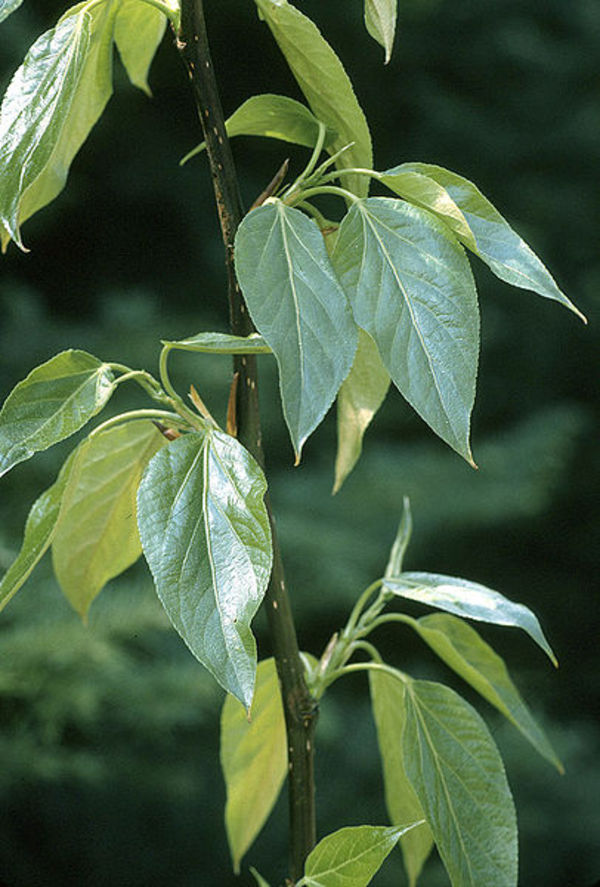
Common Name: Balsam Poplar | Scientific Name: Populus Balsamifera

Family Name: Salicaceae
Introduction
This remedy was used in colds, coughs, chronic bronchitis, in all chronic bronchial affections, pain in the thorax, hemoptysis, and even splitting blood. Like all poplars, the tree contains compounds similar to aspirin which in part explain why it relieved pain and fever, but, there is a lot more to this herb.
Resources
Notes from the Eclectic Physicians
Notes from the Eclectic Physicians
1854. John King. Materia Medica. - POPULUS BALSAMIFERA
Properties and Uses. – Poplar buds are reputed stimulant, tonic, diuretic, and antiscorbutic. A tincture of them has been beneficially employed in pectoral, rheumatic, scorbutic, and nephritic affections. Externally, macerated in oil or lard, they form an excellent liniment or ointment in the treatment of wounds, bruises, tumors, some cutaneous diseases, and in local rheumatism. The bark is said to be tonic and cathartic, and to have proved of service in gout and rheumatism. Dose of a tincture of the buds, from one to four fluidrachms; and is excellent for colds, and pain in the breast.
1883: Scudder (tonic)
Preparation – Tincture of Populus Bals.
Dose – From five drops to half a drachm.
Therapeutic Action -The buds of the Populus balsamifera (commonly called the “Balm of Gilead Buds”) are frequently employed as a tonic, gentle excitant, and pectoral agent. They yield a rich balsamic gum, upon which their virtues are dependent.
This remedy is exhibited in colds, coughs, chronic bronchitis, in all chronic bronchial affections, pain in the thorax, hemoptysis, and even in phthisis they have occasionally done good by relieving pain in the chest, lessening irritation and cough, and in promoting expectoration when it was performed with difficulty, owing to weakness in the respiratory organs.
1898: Felter and Lloyd – POPULUS – AMERICAN POPLAR
Action, Medical Uses, and Dosage – Poplar bark is tonic an dfebrifuge, and has been used in intermittent fever with advantage. An infusion of it is reputed a valuable remedy in emaciation and debility, after protracted fevers and reproductive disorders of the nervous and hysterical, lumbricoid worms, impaired digestion, chronic diarrhoea, intermittent fevers, etc. As a diuretic, it has been beneficially used in urinary affections, gonorrhoea, gleet, etc. Both populus and populin have a decided affinity for the genito-urinal tract. It is thought to aid the recuperative powers of the kidney when undergoing granular degeneration. In tenesmic vesical irritation and in tenesmus after urination it is decidedly effective. Minute doses – fraction of a drop – are most beneficial here. It is suggested by Prof. Webster for trial in stubborn uterine congestion and prostatic hypertrophies. The Large aspen, P.grandidentata, is said to be the most active and bitter. Dose of the powdered bark, 1 drachm, 2 or 3 times a day; of a saturated tincture of the fresh bark, from a fraction of a drop to 30 drops; of populin, 1 x trituration, 1 grain every 2 or 4 hours.
Specific Indications and Uses -Marked debility with impairment of digestion; tenesmic vesical irritation; tenesmus after micturition.
1898: Kings dispensatory
A tincture has been beneficially employed in affections of the chest stomach, and kidneys, and in rheumatism and scurvy. with oil they form a useful external application in bruises, swellings, wounds, some cutaneous diseases, rheumatic pains.
Disclaimer: The author makes no guarantees as to the the curative effect of any herb or tonic on this website, and no visitor should attempt to use any of the information herein provided as treatment for any illness, weakness, or disease without first consulting a physician or health care provider. Pregnant women should always consult first with a health care professional before taking any treatment.
